Abstract
Food refusal occurs for a variety of reasons. It may be used as a political tool, as a method of exercising control over others, at either the individual, family or societal level, or as a method of self-harm, and occasionally it indicates possible mental illness. This article examines the motivation behind hunger strikes in prisoners. It describes the psychiatrist's role in assessment and management of prisoners by referring to case examples. The paper discusses the assessment of an individual's competence to commit suicide by starvation, legal restraints to intervention, practical difficulties and associated ethical dilemmas. Anecdotal evidence suggests that most prisoners who refuse food are motivated by the desire to achieve an end rather than killing themselves, and that hunger-strike secondary to mental illness is uncommon. Although rarely required, the psychiatrist may have an important contribution to make in the management of practical and ethical difficulties.
Full text
PDF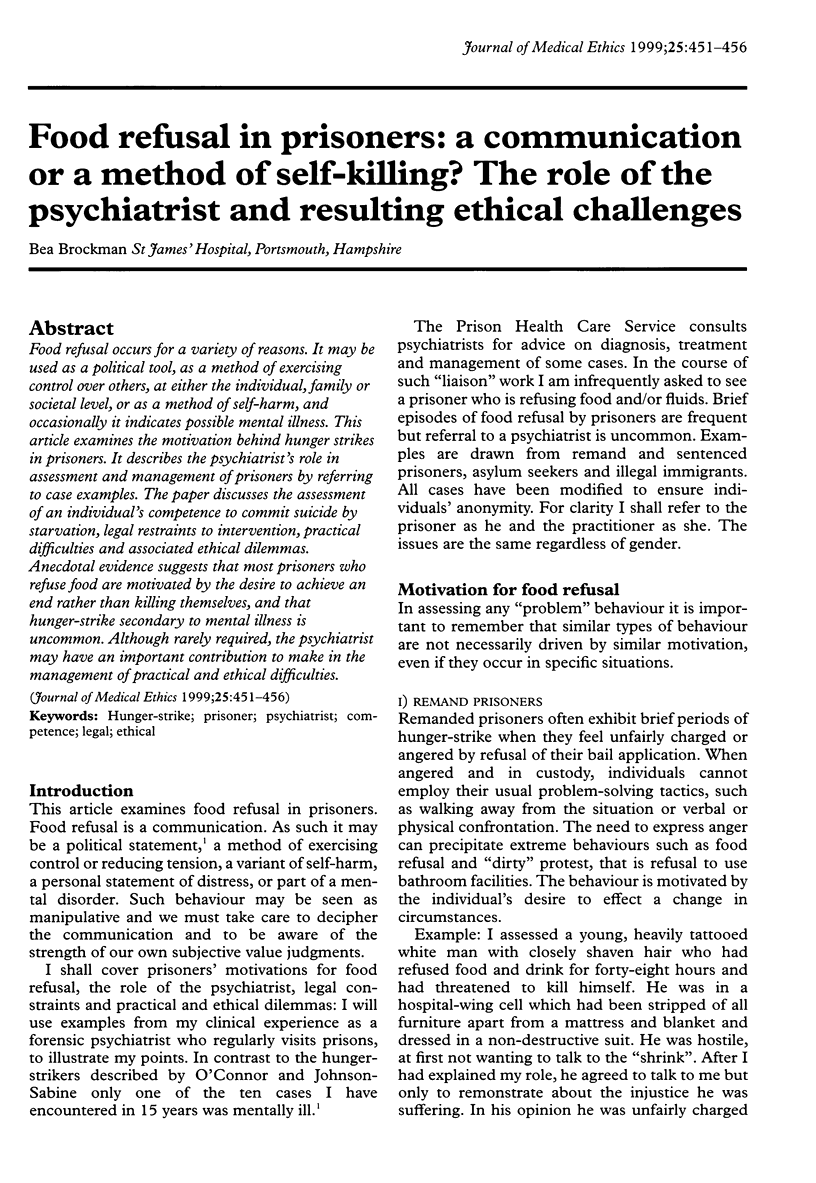
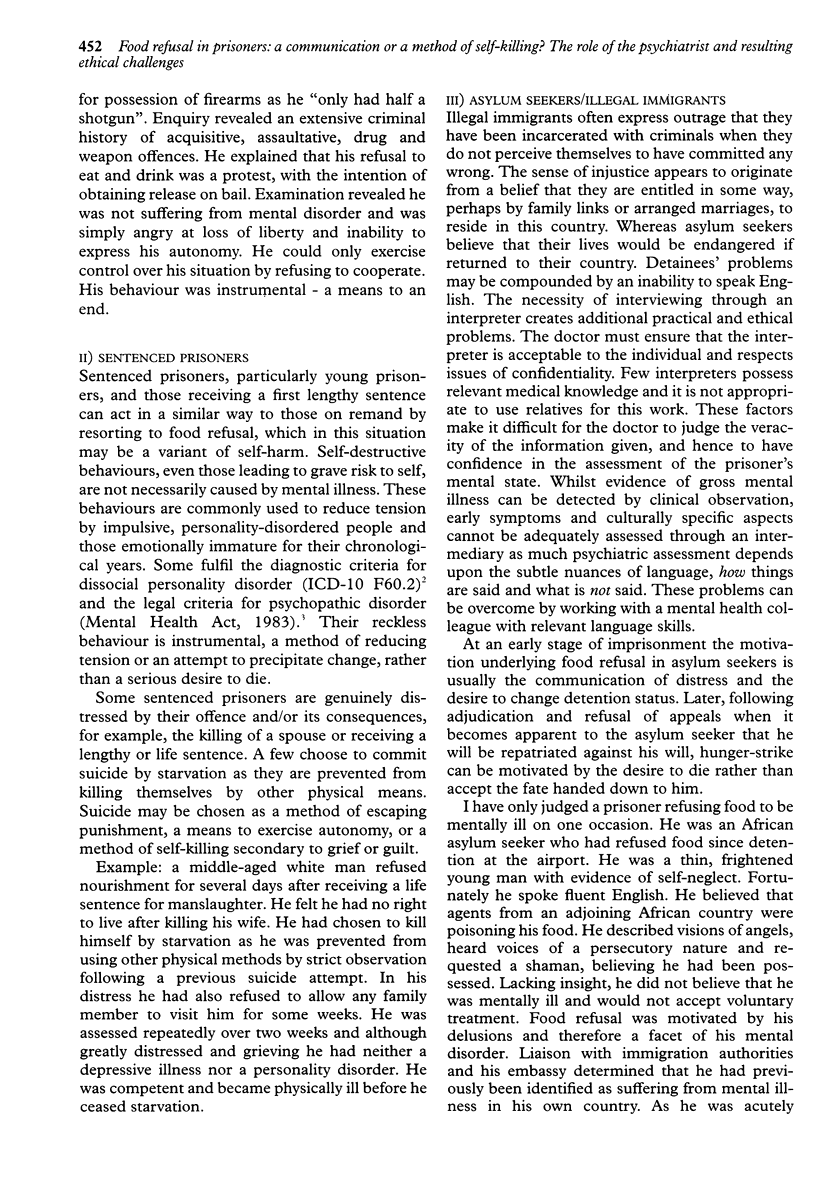
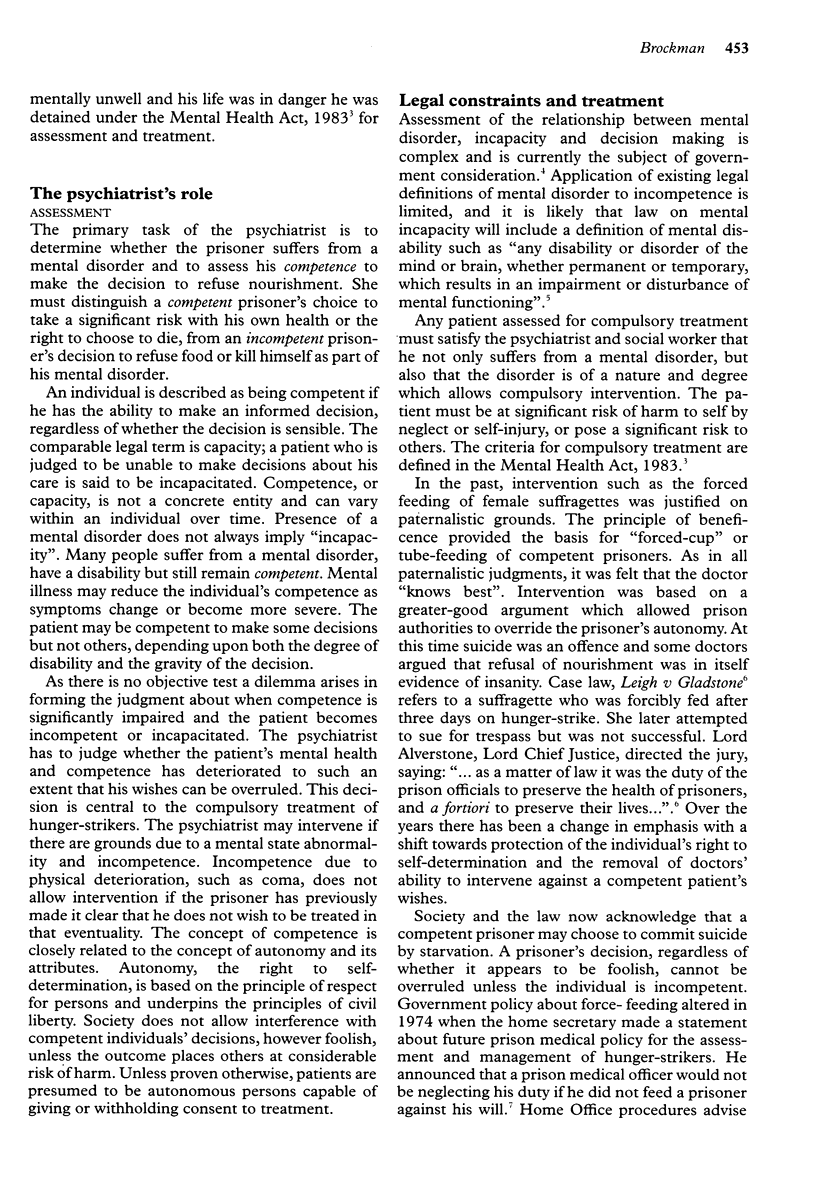
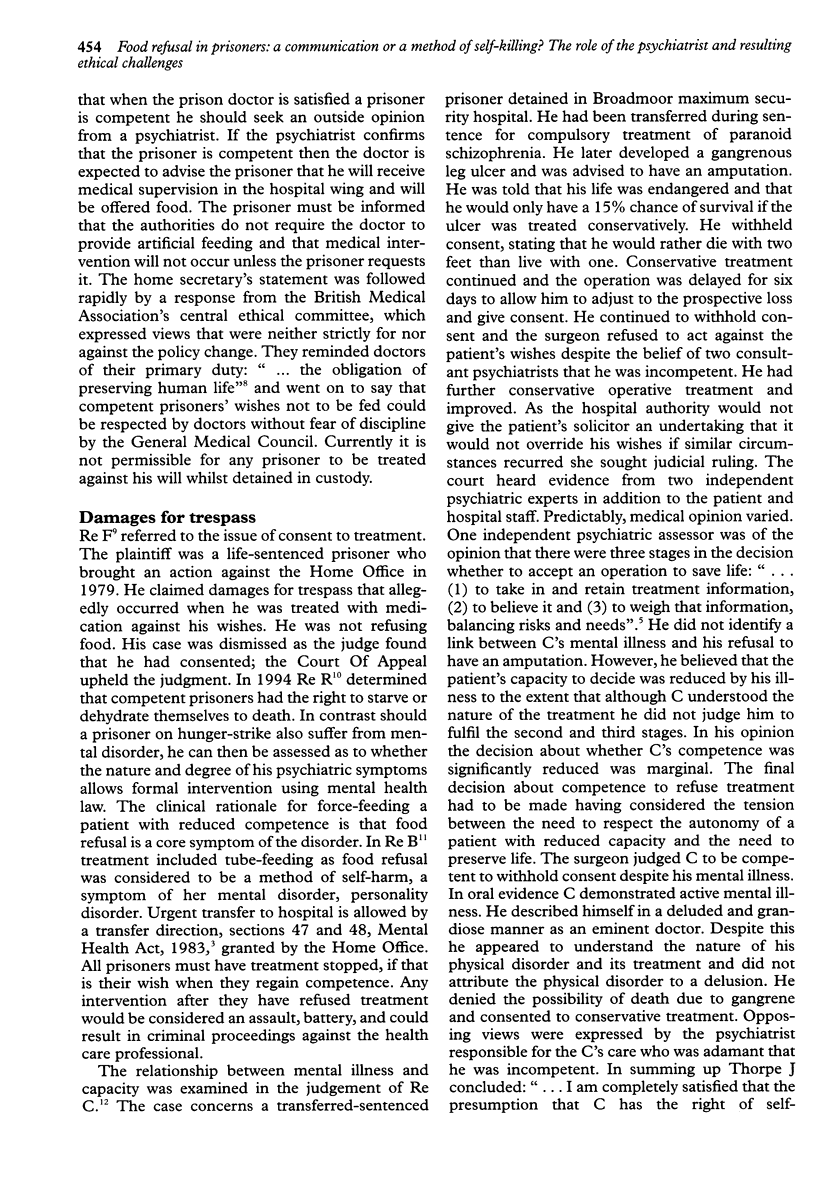
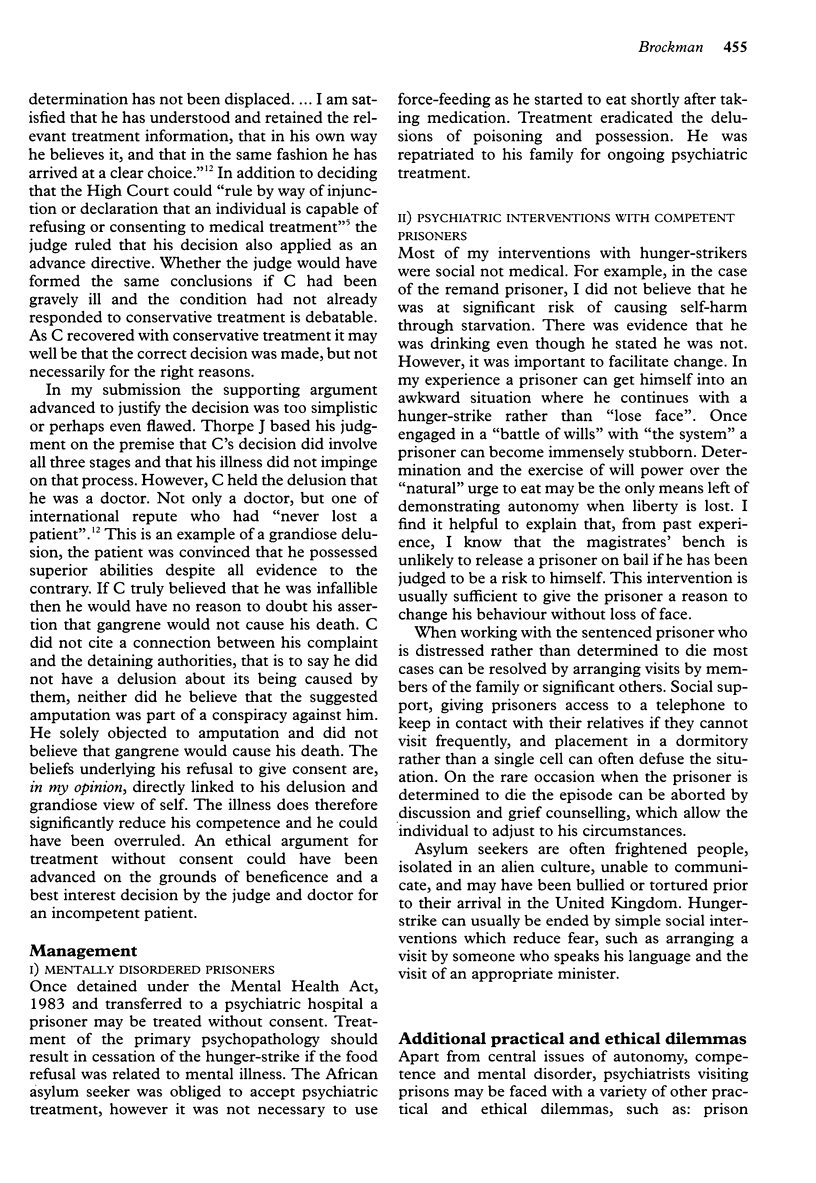
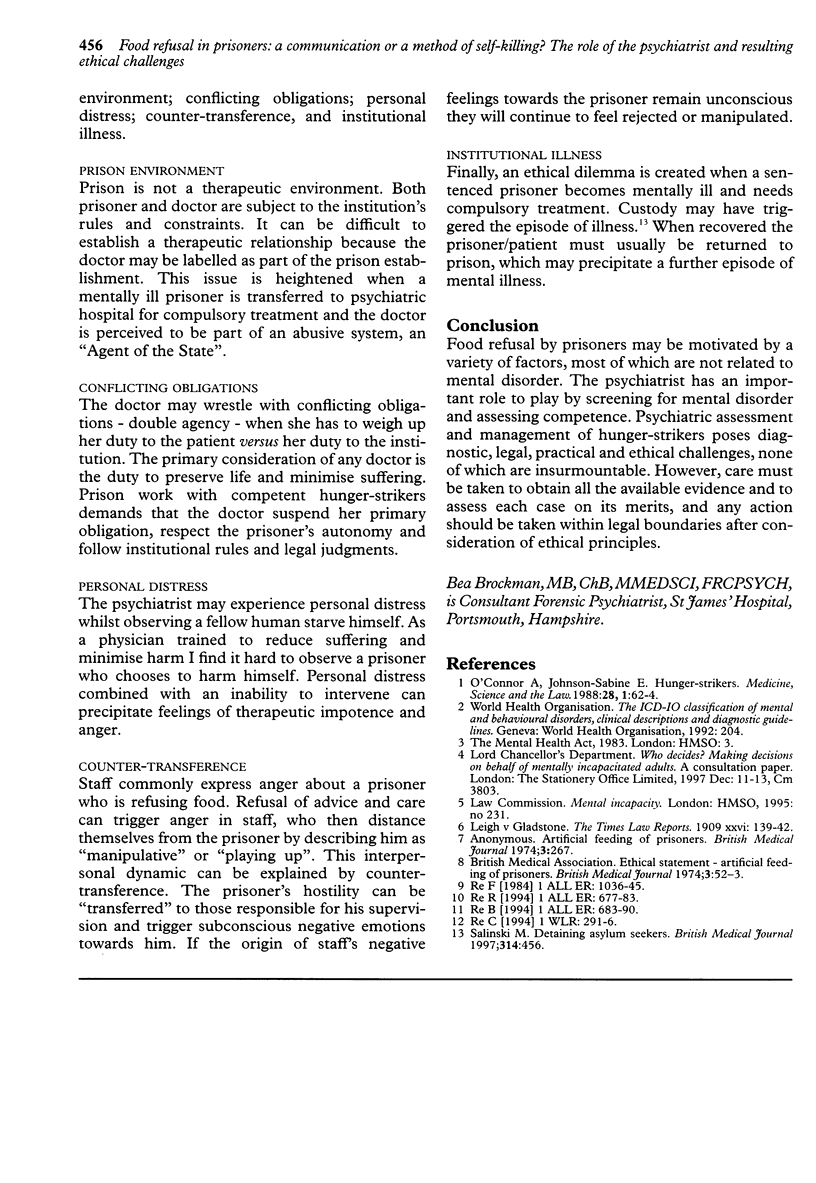
Selected References
These references are in PubMed. This may not be the complete list of references from this article.
- Salinsky M. Detaining asylum seekers. BMJ. 1997 Feb 15;314(7079):456–456. doi: 10.1136/bmj.314.7079.456. [DOI] [PMC free article] [PubMed] [Google Scholar]


